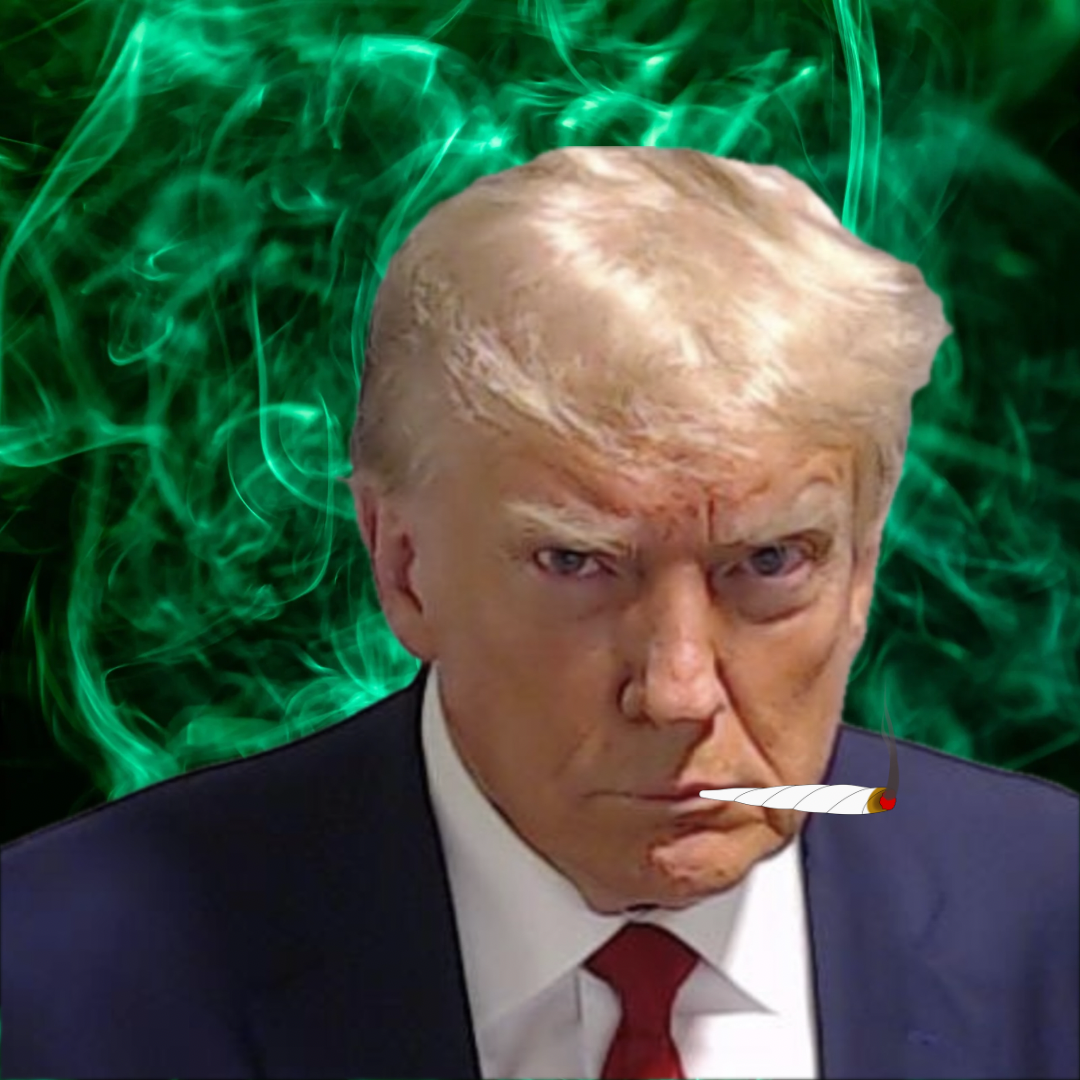
What's President Trump's Stance on Cannabis?
Today’s Inauguration Day. The former 45th President of the United States, Donald Trump, was sworn-in as the 47th President of the United States. At Stoned Earth, we wish to remain apolitical in regards to political party or any stances other than a politician’s stance towards cannabis reform. With that in mind, let’s discuss our observations on President’s Trump stance on cannabis.
When it comes to cannabis policy, former President Donald Trump’s stance is anything but straightforward. His political career, which launched in earnest with his 2016 presidential campaign, marked the start of a complex and often contradictory relationship with cannabis legalization. As we approach the 2024 presidential election, understanding Trump’s past actions and statements on cannabis is key to predicting what his policies might look like in the future.
Trump’s Record on Cannabis
Trump’s approach to cannabis has historically been enigmatic, reflecting a blend of conservative rhetoric, selective action, and occasional progressivism. On one hand, Trump has championed states’ rights, asserting that cannabis legalization should be left to individual states. Yet, his administration’s actions didn’t always align with this philosophy. In 2018, the Department of Justice, under then-Attorney General Jeff Sessions, rescinded the Obama-era Cole Memorandum, which had limited federal enforcement of cannabis laws in states where it was legal. This move signaled a tougher stance on cannabis, casting doubt on Trump’s commitment to state sovereignty in this area.
Similarly, his administration’s policies on immigration tied cannabis use to citizenship eligibility, creating additional barriers for immigrants in states where cannabis use was legal. These decisions highlighted a punitive approach that stood in stark contrast to his rhetoric supporting state-led initiatives.
Signs of Progress
Despite these setbacks, Trump’s presidency wasn’t devoid of progress on cannabis-related issues. The 2018 Farm Bill, which he signed into law, legalized the cultivation of industrial hemp, opening the door for a booming CBD industry and the development of hemp-based products nationwide. Trump also signed the First Step Act, a bipartisan sentencing reform bill aimed at reducing excessive sentences for certain federal drug offenses. While not cannabis-specific, this legislation benefited some individuals convicted of non-violent drug crimes, including those involving cannabis.
Trump’s record on clemency also reflects his nuanced approach. He commuted sentences for 16 individuals convicted of cannabis-related offenses and issued pardons for six others. However, this clemency record stands in tension with his frequent calls for harsher penalties for drug traffickers, including advocating for the death penalty in extreme cases. These contradictions underscore the unpredictability of his stance on cannabis.
Trump’s Evolving Views
In August 2024, while on the campaign trail, Trump made headlines by signaling a potential shift in his views. He stated that he’s “starting to agree a lot more” with the idea that individuals should not be criminalized for cannabis, particularly as legalization efforts gain traction across the country. He also expressed support for Florida’s Amendment 3, a ballot initiative that could expand cannabis legalization in the state. While these comments suggest a more lenient stance, it remains unclear whether they represent a genuine policy shift or a calculated political move to gain favor with pro-cannabis voters.
What’s Next for Trump and Cannabis?
As Trump secured the presidency in 2024, his cannabis policies will likely continue to reflect a blend of pragmatism and unpredictability. His support for Florida’s Amendment 3 and acknowledgment of growing national acceptance of cannabis suggest a willingness to adapt to public opinion. However, his past actions, such as rescinding the Cole Memorandum and tying cannabis use to immigration penalties, raise questions about his commitment to meaningful reform.
For cannabis advocates, Trump’s record offers both hope and caution. While his presidency included significant steps forward, such as the legalization of industrial hemp, it also demonstrated a capacity for regressive policies. As the cannabis legalization movement continues to grow, the role of federal leadership will be crucial in shaping the industry’s future.
Conclusion
Donald Trump’s position on cannabis remains a complex puzzle. His actions have ranged from progressive reforms to regressive crackdowns, and his recent comments hint at a potential softening of his stance. As we move closer to the 2024 election, it’s essential for voters to scrutinize his record and demand clarity on his future plans. In an era where cannabis reform is becoming a bipartisan issue, strong and consistent leadership could make all the difference in advancing a more equitable and sustainable cannabis industry.

